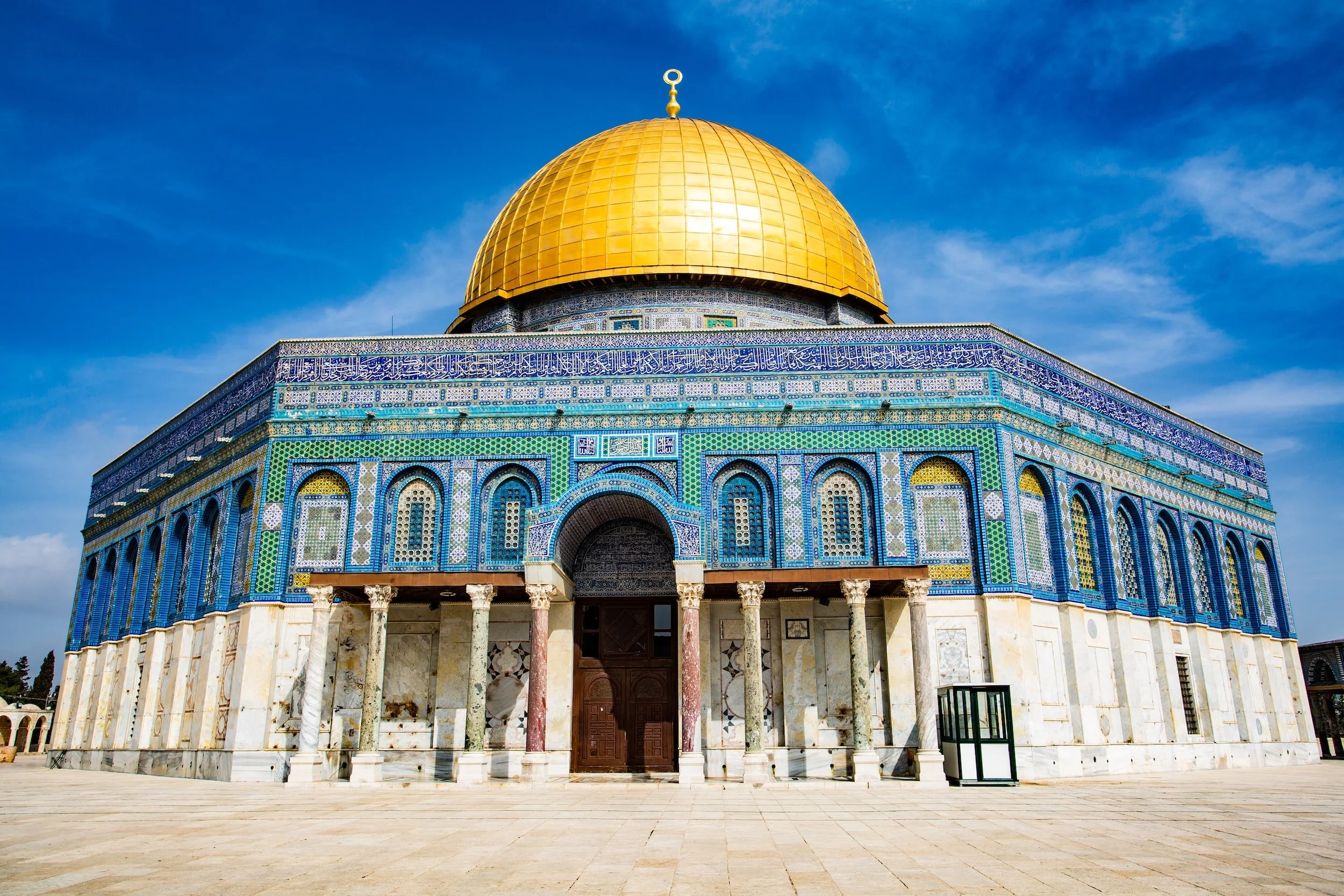
We made you to be a community of the middle way, so that (with the example of your lives) you might bear witness to the truth before all mankind.
– Quran (2:143)
The Six Beliefs
The Muslim creed is both simple and rational. It is conducive to our human rationality and our nature (fitra). Islam’s epistemology creates a fine balance between the transcendental experience of select Prophets who have historically proven their veracity through miracles and prophecy, and the common human sensual experience and reason. These various sources of knowledge do not clash nor contradict but complement each other and create a perfect harmony within the metaphysics and theology that the Islamic scriptures construct. The Prophet Muhammad (peace be upon him) summarised Muslim beliefs as follows below.
1. Allah
Allah is the name of the One True God. The belief in Allah is contained in the Islamic concept of Tawhid, or God’s transcendent unity. God is described in the Quran as al-Haqq (The Real) while all else constructed for worship is batil (false), indicating not only a divine unity but an ontological oneness, justifying Islam’s theocentric attitude.
The Quran says God is not like anything (Quran 42:11), where the thing in Arabic linguistically implies something that is willed into existence. The contingent cannot be compared to the necessary, nor can the thing of derived or subsidiary existence be compared to the One who possesses real existence. The Muslim belief about God is summarised in Quran 112: Say: He is Allah, the One, Allah, the Self-Sufficient Besought of all. He does not beget nor was He begotten, and there is none like unto Him.
2. The Angels
Angels are creatures of God created from light. They are neither gendered nor limited by hunger, the need to sleep or several other human limitations. As created beings, they are not to be confused with the timeless and infinite Deity. Angels have many duties, but their primary purpose is to worship God and serve Him (Quran 66:6).
The worship and service of God is the purpose of all existence, including inanimate objects which, according to the Islamic understanding, possess a vitality animated by God’s creative principle: The seven heavens and the earth and all that is therein praise Him, and there is not a thing but hymneth His praise; but ye understand not their praise. Lo! He is ever Clement, Forgiving (Quran 17:44). Angels are dispatched with various duties, the most important of which is conveying God’s message to the Prophets and Messengers.
3. The Books
“Previous scriptures were also sent down by God to the People of the Book (Ahl al-Kitab). The Quran is a confirmation of earlier scriptures while correcting the errors that may have accrued in them, for their maintenance were left at the hands of the men of religion (Quran 5:44).
As for the Quran, God says: Indeed We revealed the Remembrance, and We are its Protectors (15:9).
4. The Prophets
Messengers are the recipients of scripture (rusul), who are all addressed by God with the words “This community of yours is one and I am your Lord: be mindful of Me” (Quran 23:52). The believers are asked to make no distinction between any of them and believe as they do in Allah and His angels and His scriptures and His messengers (2:285). Over twenty prophets are mentioned in the Quran, most of them Biblical. The Quran establishes that for every people (came) a guide (Quran 13:7).
Messengers are vital instruments in God’s communication with man, as the ones to whom the message has failed to reach are exempt from judgment, though they must practice right as known from their God-given intuition (see Quran 76:3, 90:10 and 91:7-8): Whosoever goeth right, it is only for (the good of) his own soul that he goeth right, and whosoever erreth, erreth only to its hurt. No laden soul can bear another’s load, We never punish until we have sent a messenger (Quran 17:16).
5. Life After Death
God’s knowledge encompasses all things, and nothing can proceed without His will and omnipotent resolve.
Although God’s power is over all things (Quran 2:20), human agency is not denied. Humans possess an active consciousness that possesses autonomy, especially in intention (niyyah). Actions are by intentions (Sahih al-Bukhari), the most famous hadith says, and the intentions and choices we make may or may not result in a consequential action, which is wholly dependent on God.
The Quran says future disasters are written before they are brought into being (Quran 57:2), and He created you and what you do (37:96). Yet for (each soul) is what it earns and against it is (the ill) it acquires (2:286). Although everything is dependent on God’s will and power, He is not pleased with disbelief (or ingratitude) (Quran 39:7) which is a result of our own conscious decision and intentions.
6. The Decree
The Quran frequently evokes the beauty and diversity of the natural world, and belief in a final end gives sense and purpose to the whole creation. But for the judgment, the world would be in vain (Quran 23:115-16), which is why akhira (the next life) is mentioned exactly as often as dunya (the life of this world) in the Quran.
Islamic eschatology is detailed and complex, and many accounts have been compiled on it, but its most important features are the judgment and the final abode in the Garden (Jannah) or the Fire (Nar).


